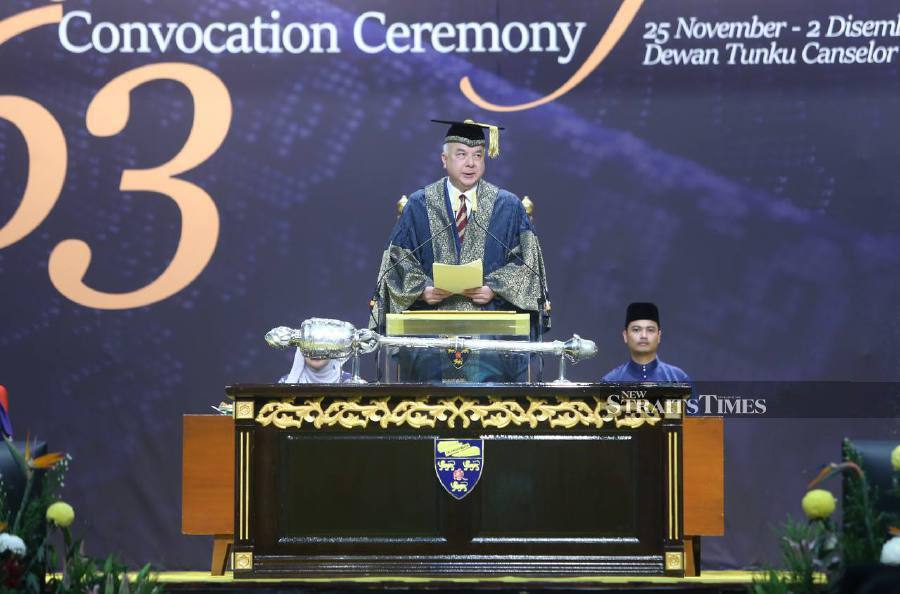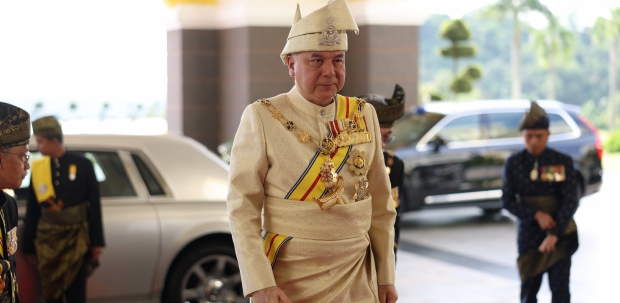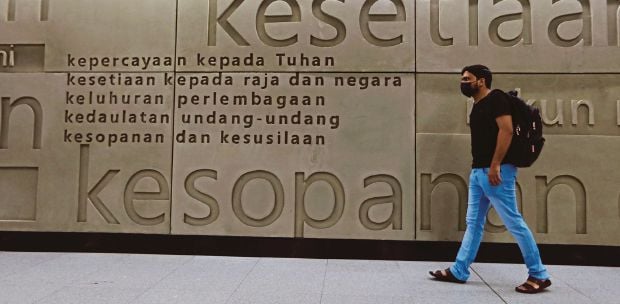KUALA LUMPUR: Sultan of Perak Sultan Nazrin Muizzuddin Shah reminded the people to always to put the Rukun Negara into practice, emphasising manners over mastery of knowledge.
The Deputy Yang di-Pertuan Agong, in his speech at Universiti Malaya (UM)'s 63rd Convocation Ceremony, advised graduates to stay humble and act politely regardless of what position they are in, as knowledge acquired and mastered should be complemented by righteous acts.
"The purpose of knowledge is to cultivate virtuous individuals because society is composed of individuals, and ethical individuals will give rise to a moral society.
"Courtesy extends beyond behavioural manners; indeed, the politeness in the language during communication reflects the intellect and character of an individual," he said.
Sultan Nazrin, who is also UM Chancellor, highlighted the rising concern over the neglect of courtesy and etiquette, which is not perpetrated by the uneducated or those in low positions but is sacrificed by highly educated, high-ranking, and titled individuals.
"This occurs on stages, places, and halls that hold esteemed status and sometimes even in places of worship.
"Harsh, vulgar, slanderous, disparaging, and insulting language is being voiced without hesitation, and sometimes even conducted by specific parties with pride and arrogance," he said.
Sultan Nazrin said the behaviour of citizens, especially among leaders, shapes the country's image in the eyes of the world, and issued a call to uphold Malaysia's moral image and cultural identity.
Sultan Nazrin said the Rukun Negara was instituted after the vulnerability of racial unity post the May 13 1969 incident, reminding all it is crucial to learn lessons from the bitter event to stop voices that provoke conflicts rooted in race and religion.
"It is perilous for the country to allow anyone, especially those appointed as leaders, to engage in behaviour involving mutual criticism and insults that can incite hatred and ignite the flames of hostility.
"Citizens and the nation should not be left as victims of the irresponsible conduct and actions perpetrated by pseudo-leaders," he said.
Citing renowned scholar Syed Muhammad Naquib al-Attas, Sultan Nazrin warned about the danger of pseudo-leaders.
He pointed out that the disorder induced by pseudo-leaders implies a dual problem: the corruption of knowledge and an inability to identify authentic leaders, thus facilitating the rise of false leaders.
"Universities should serve as a realm of knowledge capable of enlightening individuals to differentiate between genuine and pseudo-leaders.
"It should be a place that raises individuals with noble spirits, fostering a culture of respect, enabling harmonious interactions, promoting politeness and ethical conduct, and cultivating civilised and cultured individuals.
"The universities should function as nurturing grounds where expressing opinions is done orderly and respectfully, based on facts and conducted with civility," he said.
Sultan Nazrin said it is crucial to integrate the fifth principle of the Rukun Negara, 'Courtesy and Morality' into education programmes "to ensure Malaysians, especially schoolchildren, are not influenced by uncivilised behaviours with incorrect values, and the principles are understood, internalised, and practised by the community.
He stressed that courtesy and decency are the foundation for constructing a harmonious society, and it serves as a measure of the progress and civilisation of the nation.
Sultan Nazrin later presented scrolls to 500 doctoral graduates under various disciplines.
The recipients of the Honorary Doctorate included Tan Sri Datuk Sri Dr Sulaiman Mahbob, who has been involved in public service and significant roles in the corporate sector, and President of the National University of Singapore (NUS) Professor Tan Eng Chye.
Throughout the eight-day convocation ceremony, a total of 8,326 graduates will receive their scrolls: 500 for Doctoral, 2,643 for Master's, 4,186 for Bachelor's, and 997 for Advanced Diplomas, Executive Diplomas, and diplomas.





